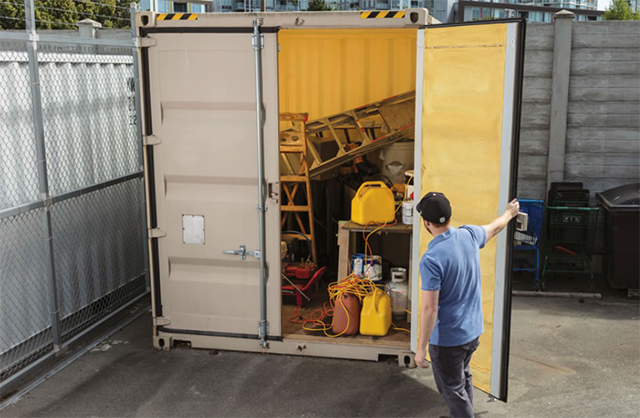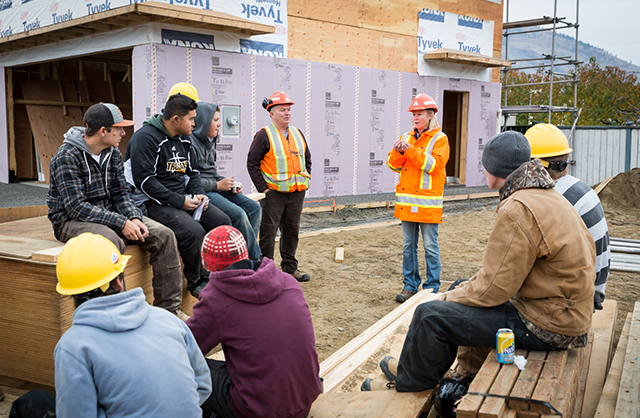Visibly visible
 Your eyes need lots of light to work well. So if you want to be seen in the dark, it's best that you shine. High visibility (“hi-vis”) clothing helps do that by reflecting light to help others see you, even in low-level lighting. Sometimes it even glows in daylight.
Your eyes need lots of light to work well. So if you want to be seen in the dark, it's best that you shine. High visibility (“hi-vis”) clothing helps do that by reflecting light to help others see you, even in low-level lighting. Sometimes it even glows in daylight.
Engineered for safety
Here are just some of the ways hi-vis clothing is designed to protect you:
- Mesh materials make hi-vis clothing light weight and breathable, for comfort in hot weather.
- Millions of super-small beads or prisms reflect light from a source (like a car headlight) back toward that light.
- Some fabrics fluoresce (glow or appear brighter) in daylight.
How to protect yourself
- Wear hi-vis clothing, especially when you are around vehicles.
- Keep hi-vis clothing clean. Dirt reduces its ability to reflect light and/or fluoresce.
Learn more
Visit High-visibility clothing to find guides, videos, and other information on this topic.
Remember, whether you’re at work, school, or home, staying safe is your most important job. If you see something unsafe, you have a right and responsibility to do something and talk to your supervisor, teacher, or parent about it.
Featured Content
2021-04-22 20:41:58


